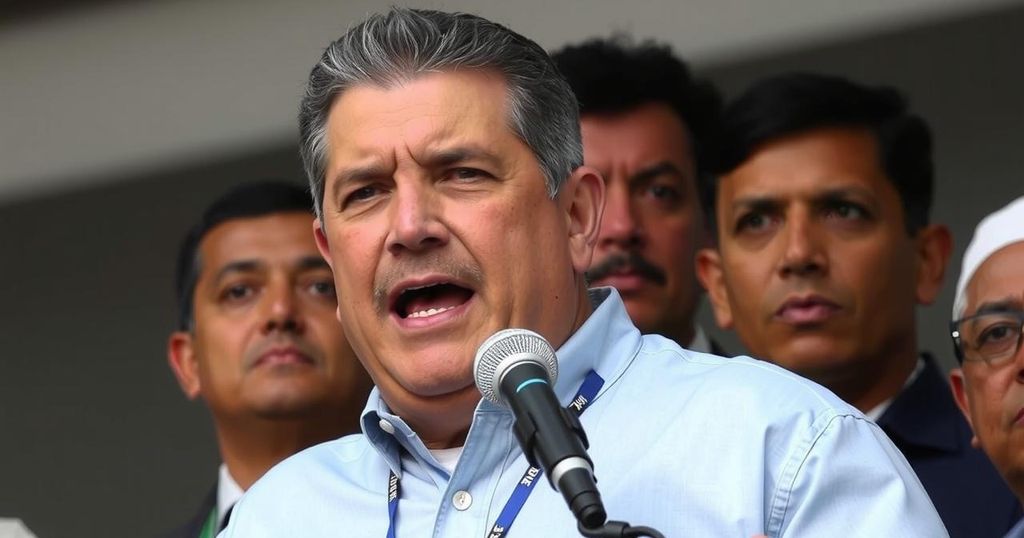Nicolás Maduro was sworn in for a third term as Venezuela’s president amidst widespread outrage over alleged election fraud, with significant protests from opposing leaders. Despite his claims of victory, he faced strong international condemnation and calls for democratic restoration from political allies and critics alike. Opposition leaders vowed to resist his regime, emphasizing the need for non-violent struggle.
Nicolás Maduro, the authoritarian leader of Venezuela, has been sworn in for a third term amid significant domestic outrage and international condemnation regarding the alleged theft of the previous year’s election. The ceremony, held in Caracas with a limited audience, was largely boycotted by democratic leaders, signifying widespread rejection of Maduro’s presidency. Despite failing to provide evidence supporting his claimed victory over opposition candidate Edmundo González, Maduro insisted that he represents Venezuelan democracy and branded his adversaries as extremists.
During a lengthy address, Maduro asserted that he is leading a democratizing revolution, portraying himself as an anti-imperialist figure in support of a democratic project inspired by Latin American independence. He criticized both foreign and domestic political opponents, labeling them as fascists and oligarchs. The inauguration has reignited accusations of dictatorship, with prominent figures like Chile’s President Gabriel Boric explicitly denouncing Maduro’s regime as non-representative of the Venezuelan populace.
The international response included strong statements from U.S. Secretary of State Antony Blinken, who emphasized Maduro’s illegitimacy, and U.K. Foreign Secretary David Lammy, who declared Maduro’s rule as fraudulent. In reaction to the election’s disputed results, new sanctions against Maduro’s regime were announced by the U.K. and the U.S. Meanwhile, exiled opposition leaders vowed to oppose Maduro’s regime through peaceful means and civil disobedience, raising hopes for a potential political shift in Venezuela.
The political scenario in Venezuela has been dire, with Nicolás Maduro increasingly consolidating power since his initial election in 2013. The legitimacy of his rule has come under severe scrutiny following the controversial 2024 presidential elections, where claims of electoral fraud have been backed by reports from opposition groups. As economic conditions worsen in Venezuela, the pressure on Maduro’s government has multiplied from both internal adversaries and the international community, leading to heightened tensions and calls for democratic restoration.
Maduro’s swearing-in has not only incurred widespread rejection from domestic and international communities but also sparked renewed efforts among opposition leaders to unify against his regime. The global outcry against alleged electoral fraud and human rights abuses remains a significant challenge for Maduro, as his government faces increasing isolation. As Venezuela’s future hangs in the balance, the resilience of its populace and the continued advocacy for democratic principles may pave the way for potential changes ahead.
Original Source: www.theguardian.com






